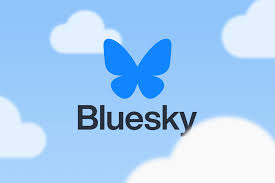



Back before he made “Dances With Wolves” and in all the years since, Kevin Costner has spoken of his life-changing experience in the cinema, going to see “How the West Was Won” as a child in 1962, a Western in glorious Technicolor in the widest widesceen process of them all — Cinerama.
And while that elephantine, lumbering epic has informed many of his Westerns over the years — “Dances With Wolves,” “Open Range” and “Wyatt Earp” among them — he’s somehow managed to avoid making his own sprawling, star-studded “version” of that film. Until now.
And more’s the pity that he did.
“Horizon: An America Saga, Chapter 1” is a “How the West was Won” for the streaming era, a choppy, ponderous and episodic horse opera set just before, during and after the Civil War. As a big-screen experience — “Chapter 2” opens Aug. 16 — it has moments of grandeur and the occasional impressive action sequence, some bits of inspired casting and a lot of the Western tropes we’ve come to expect from the genre, both beloved and in some cases, worn out.
Costner himself plays a self-reliant Westerner who can be a man of violence, softened by saving a prostitute (Abbey Lee) and a child from murderously-vengeful thugs on a vendetta.
Sienna Miller plays a settler who survives an Indian massacre of her just-founded, ill-located “boom” town and falls in with a cavalry fort, where Sam Worthington serves as a lieutenant, Micheal Rooker is an Irish ethnic sergeant and Danny Huston is the world-weary but Big Picture-grasping officer in charge who gives the big speech about the sorts of people fleeing the East, their dull and limited “horizons” for “the last great open expanse on Earth.”
Luke Wilson leads a wagon train stalked by people the cavalry lieutenant takes pains to label “indigenous” and his commanding officer calls “aboriginals,” hostiles the other folks in Connestoga wagons only know as “Apache” because that’s already one of the most feared tribes on the new frontier.
Jeff Fahey and Scott Haze have competing agendas as “Injun hunters” determined to wipe out the band of Apache led by Pionsenay (Owen Crow Shoe) who wiped out Horizon, an Indian Territory town that was illegally sold and settled by an unscrupulous “boomer” and speculator, played by Giovanni Ribisi in “Chapter 2.”
The film goes to some pains to show the West as a lot more diverse than John Ford, Howard Hawks or Henry Hathaway ever did — with exploited but kind and enterprising Chinese immigrants, plenty of seemingly-accepted Black settlers, discriminated-against Mexicans and Native Americans (Tatanka Means and others) who see their doom in these raids upon the numerous and undeterred “white eyes.”
Massacres beget massacres when the bloodshed is over who gains dominion over all this open space.
The history thrown in here includes the distant Civil War, which starts a couple of years after the film’s 1859 opening and draws off cavalry that could have been patrolling the Plains and beyond, the unscrupulous land hustles and delusional sales-pitch “science” that helped convince tens of thousands back East to pull up stakes and settle in a desert.
“Rain follows the plow,” the huxters parrot to those who know how stupid that “science” is and those gullible enough to buy it.
Costner, who co-wrote the script, folds in “West Was Won,” “The Searchers” and “Jeremiah Johnson” and snippets of John Ford’s “Cavalry Trilogy” into this saga’s vendettas, violence, mining camps and wagon train, prostitutes and buffalo fur-clad “Sykes” clan, hellbent on avenging themselves for some great perceived wrong done them by a woman, of all creatures.
Truth be told, what comes out is less than wholly satisfying and ends clumsily and abruptly, teasing “Chapter 2” as “Chapter 1” comes to a series of limp anti-climaxes.
There’s little in the writing that has the sentimental pull of “My Darling Clementine” or the hardboiled, sometimes comical poetry of “Red River.”
“There are only two things more beautiful than a good gun: a Swiss watch or a woman from anywhere. Ever had a good… Swiss watch?”
Truth be told, aside from the overly-curled, over-dressed and dolled up hooker Marigold’s (Lee) relentless pursuit of maybe three-times-her-age Hayes Ellison (Costner), there’s nothing lighthearted about this. The script is too archetypal for its own goodm the production a little too neat and color coordinated (Costner’s color-matched Western wear), the firearms perhaps less period-accurate than one would like.
But Costner delivers in his role, Rooker and Wilson, Dale Dickey (as a cruel frontier matriarch), Miller and Tim Guinee, playing the settler-husband who holds off the Apache in their fortified house as long as possible, Huston and Will Patton are perfectly cast, and nobody in this ensemble seems wholly out of place.
The big gunfight is brief, the big Horizon massacre beautiful, gripping and horrific in ways most of the movie, save for its grand, aspen-lined mountain or desert vistas, never manages.
Maybe “Chapter 2” will be better. I’m betting this ungainly epic will play best when it is streamed in the very near future, with lots of pauses for bathroom breaks. But even then, let’s face it, it’s no “Lonesome Dove.”
Rating: R, violence, nudity, sec, profanity
Cast: Kevin Costner, Sienna Miller, Luke Wilson, Sam Worthington, Michael Rooker, Tatanka Means, Jena Malone, Michael Angarano, Dale Dickey, Owen Crow Shoe, Abbey Lee, Scott Haze, Ella Hunt, Will Patton, Tim Guinee and Danny Huston
Credits: Directed by Kevin Costner, scripted by Jon Baird, Kevin Costner and Mark Kasdan. A New Line release.
Running time: 3:01



White Man conquers all with help. Costner cosplays a White Savior in every movie he is in.
While that’s not an inaccurate description of a lot of his movies, it doesn’t neatly fit here and suggests you haven’t seen it. The movie doesn’t upend the Western mythos, but it does go to some pains to point fingers and illuminate the erased while still appealing to a 60+ audience.